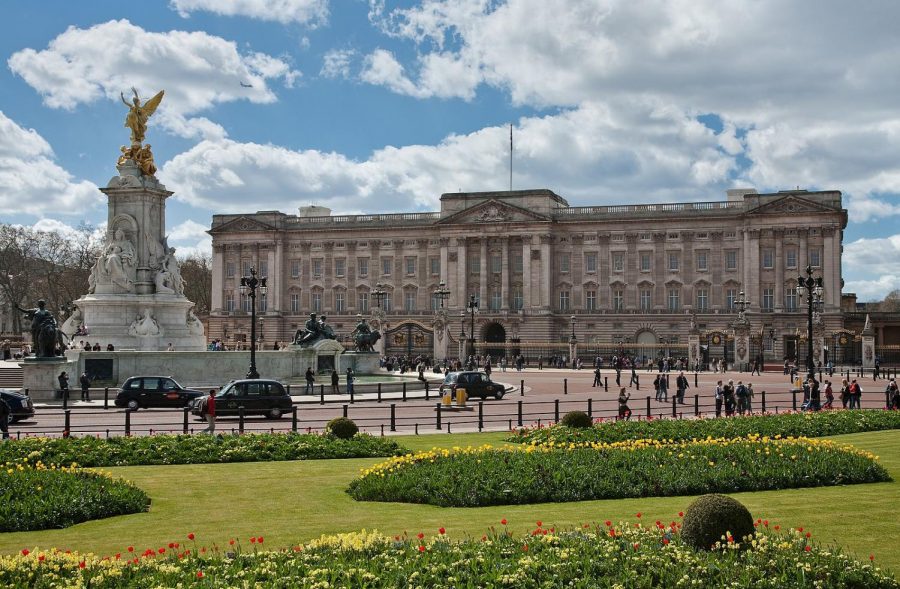Kincart: The British Monarchy Isn’t a Fairytale
April 3, 2021
Like many young girls, princesses and fairytales played a prominent role in my upbringing. Learning that princesses exist in real life and aren’t just make-believe rocked my world. I reached the pinnacle of my fairytale dreams while watching Prince William and Kate Middleton’s wedding on TV. But, when Prince Harry and Meghan Markle got married, I was finally old enough to recognize the complexities of their relationship. Markle is a former American actress with a Black mother and white father. She’s previously divorced and unlike the typical notions of British royalty. The Oprah interview with Meghan and Harry made clear that royal life is anything but a fairytale. The same racism and classism that plagues the British monarchy extends to everyday life in the UK.
In the interview, the couple discussed the racist comments circulating through the tabloids. Headlines such as “Harry to marry into gangster royalty” and “Harry’s girl is (almost) straight outta Compton” are representative of the racism that prompted the couple’s move to California. Unfortunately, the racism extended beyond the media. Much of the discussion centered around racism fell within royal circles. The couple described discussions about their son’s skin color relating to the security or title given to him. These conversations in upper circles translate into Britain’s response to racism or lack thereof. Nearly two in three Black people say that the UK hasn’t done enough to address historical racial injustice, which is two times the proportion of white people who feel the same. There are also significantly different responses between Black and white people’s perceptions regarding respectful police treatment toward Black people. There’s a clear problem with the perceptions of racism in the UK. Britain needs to own up to its colonial history and work to reverse racial inequalities. The Crown needs to set an example in doing so.
The interview also spoke to the classism faced by Markle. Members of the family suggested that she continue acting since there wasn’t enough money to pay for her. This interview made it abundantly clear that Markle’s racial, social, economic and marital differences kept her from gaining the favor of the Crown. This translated into her lack of compensation.
Issues of classism aren’t just present within the royal family. 77% of people feel that there is a large gap between social classes in Britain and 50% believe that the central government should do more to improve social mobility. Nonetheless, the royals still live in a huge palace, while about 20% of the UK lives in poverty. The wealth displayed by Buckingham Palace alone is enough to demonstrate the classism intertwined in everyday life for those in the UK.
Although this interview shined a lot of light on the shortcomings of the British monarchy, it’s also a call to action for us. It’s hypocritical for people to be posting about how problematic the Crown is when we, in the US, are not absolved from the same issues. The US — and even our campus community — has room for improvement.
Mia Brown, a freshman at the U, thought the interview was “overdramatized.” She already knew that the royal family is racist, so she found it surprising that the interview blew up on social media. Brown thinks the popularity of the interview can be credited to Markle’s status as American; thus, it feels more relevant to us.
Let’s use the popularity and relevance of the interview to prompt change, instead of simply condemning the royals. According to Brown, the interview showed that “racism and mental illness impact people’s lives very seriously.” She advocated for policy changes at the federal level to minimize these issues in the future. She specifically advocated for police reform. There’s a strong relationship between mental health, racism and policing. Mental health professionals can “defuse potential conflicts between law enforcement and the community.”
Brown also noted that the royal family is an institution in the same way that a university is. Both are complicit in upholding racism and classism—which needs to change. Going to college itself is class privilege, but inequalities are perpetrated on the basis of class while in college. The University of Utah should aim to be more equitable for all students, regardless of class.
While the Oprah interview pointed to problems with the British monarchy, there’s a lot to be learned about the ways in which racism and classism plague everyday life. Let’s use this interview as a reminder of how much work is still to be done, especially within our campus community. We should push for a more equitable campus community and be the ones to lead change.








